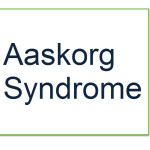Chorionic villus sampling (CVS) is a prenatal test carried out during pregnancy to detect any chromosomal or genetic abnormality in an unborn baby. In this procedure, a small sample of chorionic villus is removed from the mother’s body and tested for the presence of any abnormality in the baby. Chorionic villus is the tissue present […]
Genetic Diseases
Genetic Inheritance-Modes and Significance
Genetic inheritance is a basic principle of genetics. It explains how characteristics and traits are passed from one generation to the next. Every individual receives genetic material from both the parents. However, which gene will dominate to express itself or how the various genes interact with each other to express a certain trait or disorder […]
Hemochromatosis: Causes, Symptoms and Treatment
Hemochromatosis is a condition characterized by the excessive storage of iron in the body. The condition is also known as iron overload. Primary hemochromatosis is a type of hemochromatosis when there is excessive absorption of iron due to a genetic defect. Secondary hemochromatosis occurs due to some other underlying disease. This excess iron is stored […]
Wilson Disease – Symptoms, Diagnosis And Treatment
Wilson disease is a rare inherited disorder in which excessive amounts of copper accumulate in the body, particularly in the liver, brain, and eyes. It is also called hepatolenticular degeneration syndrome or copper storage disease. Most people present with symptoms between 5 to 35 years of age, but it can affect younger and older people, […]
Albinism – Causes and Types
Albinism is of a group of inherited disorders characterized by a congenital reduction or absence of melanin pigment due to defective production of melanin from tyrosine. An estimated 1 in 17,000 people have one of the types of albinism. Oculocutaneous albinism is the most common type of albinism Both males and females can be affected. […]
G6PD Deficiency-Classification, Investigations, and Treatment
Glucose 6 Phosphate dehydrogenase deficiency or G6PD deficiency is the most common metabolic disorder of red blood cells. It is a genetic disorder in which there is a deficiency of enzyme Glucose-6-phosphate dehydrogenase or G6PD in the blood. This enzyme plays a role in Hexose monophosphate pathway [a metabolic pathway involved in the formation of […]
Aarskog Syndrome – Symptoms and Treatment
Aarskog syndrome is a rare genetic disorder manifested by retarded growth that occurs by three years of age, facial, musculoskeletal and genital anomalies, and mild intellectual disability. The disorder occurs in 1 in 1 million individuals in the general population. Some mild cases often go unrecognized. Causes of Aarskog Syndrome Aarskog syndrome is transmitted as […]
Alpha 1 Antitrypsin Deficiency Disorder
Alpha 1 antitrypsin deficiency or α1-antitrypsin deficiency is an inherited disorder that may cause lung disease and liver disease. The signs and symptoms of the condition and the age at which they appear vary among individuals. It is an autosomal-codominant condition with more than 120 alleles identified. Out of them, PiZZ is responsible for nearly […]
Xeroderma Pigmentosum: Causes, Treatment and Prognosis
Xeroderma pigmentosum is a genetic disorder of extreme sensitivity to ultraviolet light and is characterized by photosensitivity, pigmentary changes, premature skin aging, and malignant tumor development. It is transmitted as an autosomal recessive character caused by defective repair of the damage to DNA induced by sunlight. The frequency is about 1 case per 250,000 population […]








